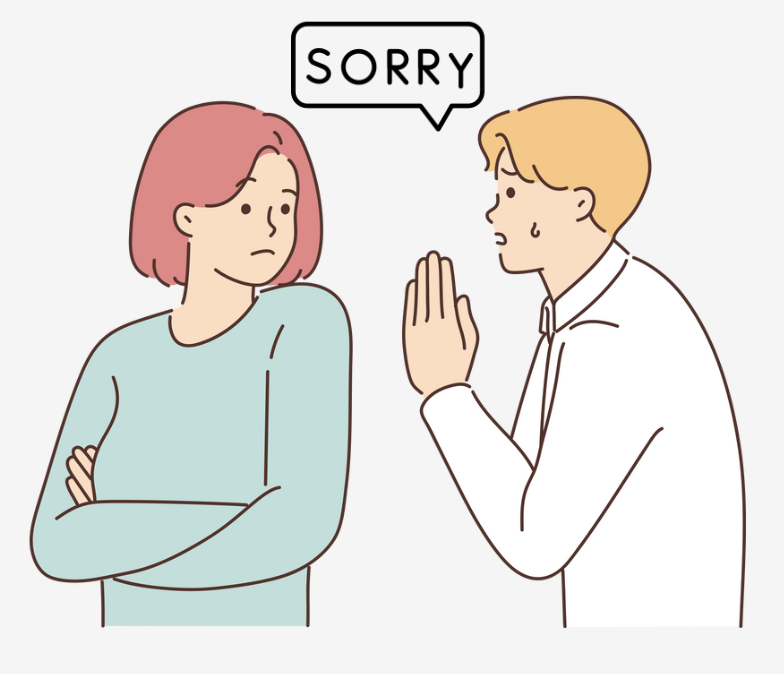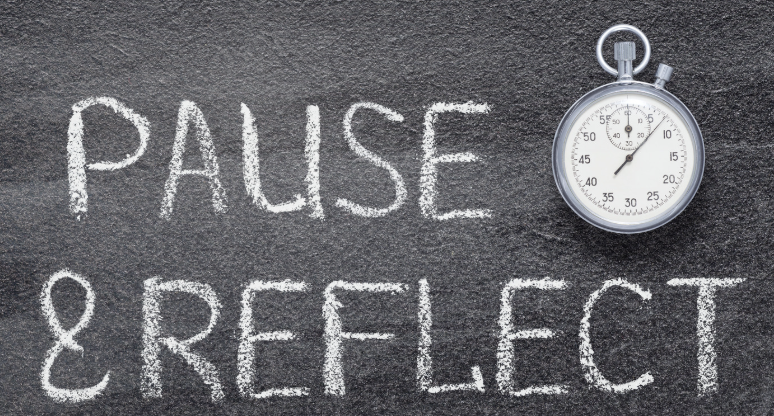What If You’re the Problem? Self-Reflection in Dating
Let’s rip the band-aid off: What if you’re the problem? Sure, it’s easy to point fingers at your exes—the one who ghosted, the one who never texted back, the one who was “just too needy.” But here’s a spicy truth bomb: if your dating life feels like a dumpster fire over and over again, the common denominator might just be... you.
But hey, this isn’t about dragging yourself through the mud. Think of this as a wake-up call wrapped in a hug (and a little sarcasm). Let’s figure out how to fix it.
Are You the Red Flag? Let’s Investigate
You Have Drama on Repeat
Take a step back and think about how your relationships typically end. Do they resemble fiery soap opera finales where one person storms out, or another accuses you of being “too much” in some way? If every breakup feels like déjà vu, it’s not just a coincidence. People don’t randomly call someone controlling, clingy, or emotionally unavailable—it’s likely a reaction to how you show up in relationships.
Maybe you try to micromanage your partner because you fear losing them. Or perhaps you withdraw emotionally because opening up feels too risky. These behaviors aren’t random—they’re rooted in unresolved fears or insecurities. And the truth is, the “dramatic explosions” aren’t about finding the wrong person over and over again. They’re a signal that something in your approach needs to change.
Spoiler: That’s not just bad luck. It might be time to examine your behavior.
You Struggle with “I’m Sorry”
Let’s be real: Nobody likes admitting they’re wrong, but if the mere thought of apologizing makes your skin crawl, that’s a red flag waving in your own direction. When every disagreement feels like a courtroom battle where you must win at all costs, what you’re really doing is draining the life out of the relationship. Winning the argument might feel satisfying in the moment, but what’s the cost? Usually, it’s your partner’s trust, respect, or even affection.
A simple, sincere “I’m sorry” is one of the most underrated relationship saviors out there. But it’s not just about saying the words—it’s about owning your part in the problem and showing you’re willing to change. Refusing to apologize doesn’t make you strong; it makes you stubborn and impossible to connect with. If you want to be in a healthy relationship, learning how to genuinely apologize isn’t optional—it’s essential.
You’re Guarded AF
Vulnerability might as well be a four-letter word in your book, right? The idea of letting someone see your messy, unfiltered emotions feels terrifying. Instead of risking rejection, you build walls. You deflect with sarcasm, keep conversations shallow, or simply ghost when things get too real. You think you’re protecting yourself, but let’s call it what it is: self-sabotage.
Here’s the catch—relationships thrive on vulnerability. Being guarded doesn’t just keep you safe; it keeps love out. By refusing to let people in, you’re trading short-term comfort for long-term loneliness. Yes, being vulnerable feels risky, but it’s also the foundation of intimacy. Without it, your relationships will stay stuck in the shallow end. The question is: Do you want a connection that’s real, or are you content with one that’s surface-level?
Everyone Else Is “The Problem”
If every breakup ends with you pointing fingers, it’s time to reconsider. Maybe your ex was “too needy.” Maybe your friends are “too judgmental,” or the barista really does have an attitude problem. But if you constantly find yourself playing the victim, it’s worth asking: What’s my role in all this?
Blaming others is an easy way to avoid looking at your own behavior. It’s also a surefire way to stay stuck. When you deflect accountability, you rob yourself of the chance to grow. Constantly pointing the finger doesn’t make you look insightful—it makes you look blind to your own faults. Healthy relationships require a willingness to reflect, adjust, and take responsibility when things go wrong. If you refuse to do that, the problem might not be “them”—it might be you.
Why This Matters: The Case for a Long, Hard Look in the Mirror
Okay, so maybe this feels a little harsh. But here’s the thing: If you don’t confront your toxic patterns, you’ll keep reliving them. And nobody deserves that—least of all you. When you take accountability, you’re not just doing it for your future partner. You’re doing it for yourself.
Stronger Connections: Healthy self-awareness leads to deeper, more fulfilling relationships.
Breaking the Cycle: Stop repeating the same mistakes with different people.
Owning Your Power: Self-reflection gives you control over your dating life.
So, You’re the Problem. Now What?
1. Take a Hard Look at Your Dating History
Take a good, hard look at your past relationships. If every relationship ends in the same disaster, there’s a chance you’re unconsciously replaying the same story.
Emotionally Unavailable Attraction: Are you constantly drawn to people who can’t or won’t commit? Be honest: Is it because deep down, you fear commitment too? Choosing someone unavailable might feel safer—after all, they can’t hurt you if they never truly let you in.
Picking Fights to Stay in Control: Do you nitpick or create drama over small things? It’s often easier to argue about trivial issues than to admit you feel scared, lonely, or unsure. Avoidance doesn’t solve problems—it just creates new ones.
How to Unpack It: Write it all down: your role in the fights, the choices you made, and the partners you picked. If seeing the pattern in writing feels embarrassing, good! That discomfort means you’re on the right track.
2. Ask for Honest Feedback
We all have blind spots. To find yours, ask someone who knows you well what they think.
How to Approach: Start with something simple, like, “I’m trying to work on myself. Can you tell me one thing I could improve in relationships?”
The Tough Part: Their feedback might sting—especially if it highlights something you’ve been avoiding. For example, they might say, “You get defensive when someone challenges you,” or “You struggle with expressing affection.” Don’t argue. Just listen.
Why This Matters: Sometimes the truth about ourselves is easier to accept when it comes from someone we trust. Use their insights as a mirror to see what you might otherwise overlook.
3. Ditch the Ego and Apologize
Nobody likes admitting they’re wrong, but it’s one of the most powerful ways to repair and grow in relationships.
A Genuine Apology: It’s not just about saying “I’m sorry.” It’s about acknowledging the harm you caused and showing you’re willing to change. For example, “I’m sorry I shut down when we argued last week. I realize it made you feel unheard, and I’ll work on being more present.”
Why This Works: Owning your mistakes shows you value the relationship more than your pride. It builds trust and demonstrates emotional maturity.
How to Practice: Start small. Apologize for snapping at a coworker or forgetting a friend’s call. Once you’re comfortable with the act of apologizing, it becomes easier to do in bigger moments.
4. Get Out of Your Own Way
Do you keep people at arm’s length, thinking you’re protecting yourself? Ironically, those walls might be doing more harm than good.
The Vulnerability Factor: Opening up doesn’t mean oversharing all at once. It means taking small steps, like sharing a personal story or admitting when you’re struggling. Vulnerability creates intimacy—it’s how relationships deepen.
How to Start: Pick one person you trust and tell them something you’ve been holding back. For instance, share a goal you’re afraid to pursue or a fear you’ve never voiced. Observe their reaction—it’s often warmer than you expect.
Why It Matters: Without vulnerability, relationships stay superficial. Yes, it’s scary to let someone in, but it’s also rewarding.
5. Get Help if You Need It
Sometimes, self-reflection isn’t enough. Patterns rooted in deep fears, trauma, or unhealthy habits may need an outside perspective to unravel.
Why Therapy? A trained therapist can help you understand why you behave a certain way in relationships. They’ll help you identify triggers, unpack past experiences, and develop healthier patterns.
When to Seek Help: If you find yourself stuck in the same toxic cycles no matter how hard you try, or if your emotions feel overwhelming, therapy might be the next step.
Making It Accessible: Therapy doesn’t have to be daunting or expensive. Many therapists offer sliding-scale fees, and some communities provide free or low-cost counseling services.
The Bottom Line: It’s Not About Perfection
Here’s the good news: You’re not doomed. Being “the problem” doesn’t mean you’re unlovable. It just means you’ve got some work to do—like all of us. Self-reflection isn’t about beating yourself up; it’s about taking responsibility for your happiness and the health of your relationships. Change is possible—it starts with asking hard questions, making intentional adjustments, and getting help when needed.
The real red flag isn’t having flaws; it’s refusing to do anything about them. So, roll up your sleeves, take a deep breath, and start building the best version of yourself. Your future self—and your future relationships—will thank you.


